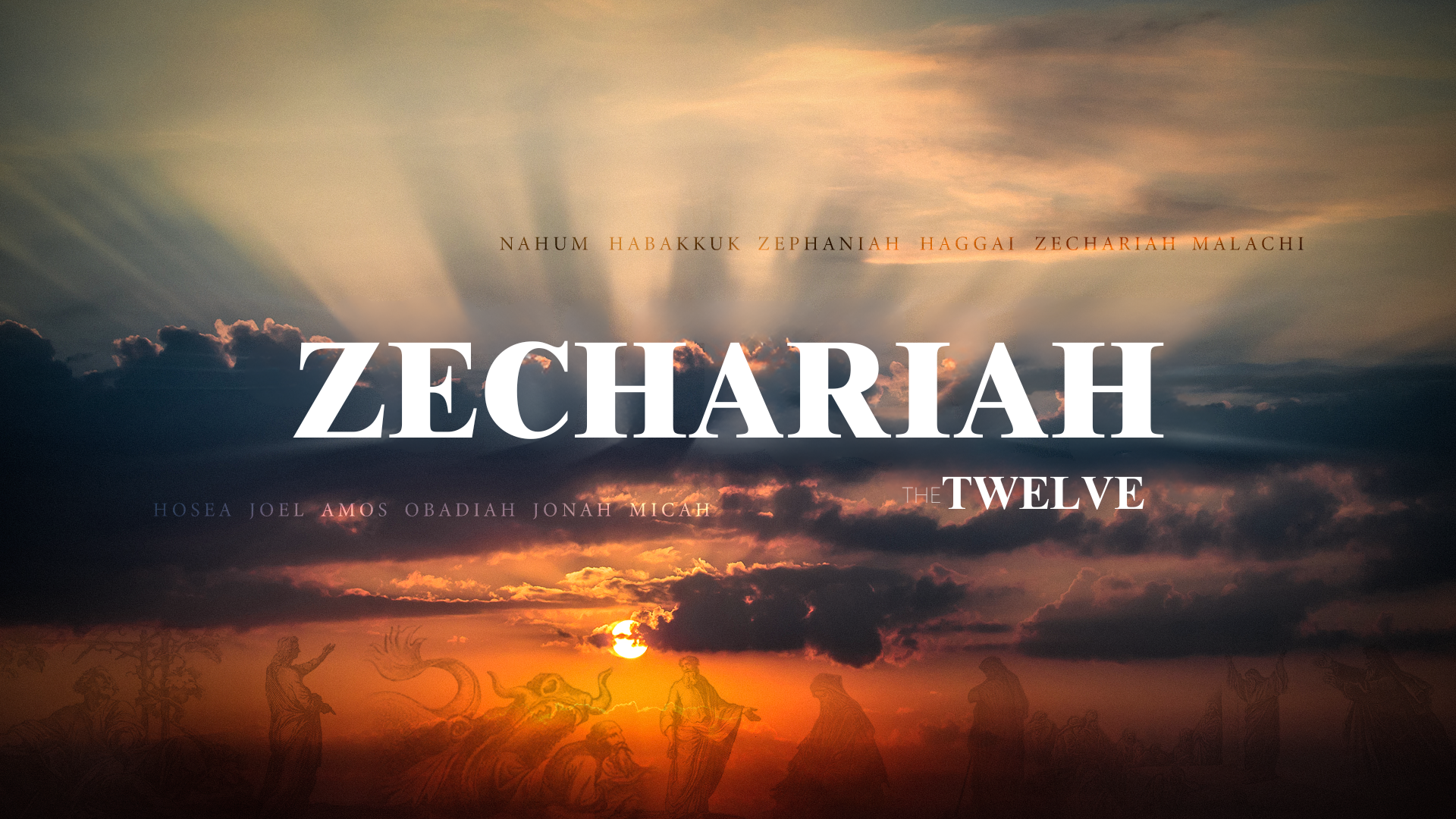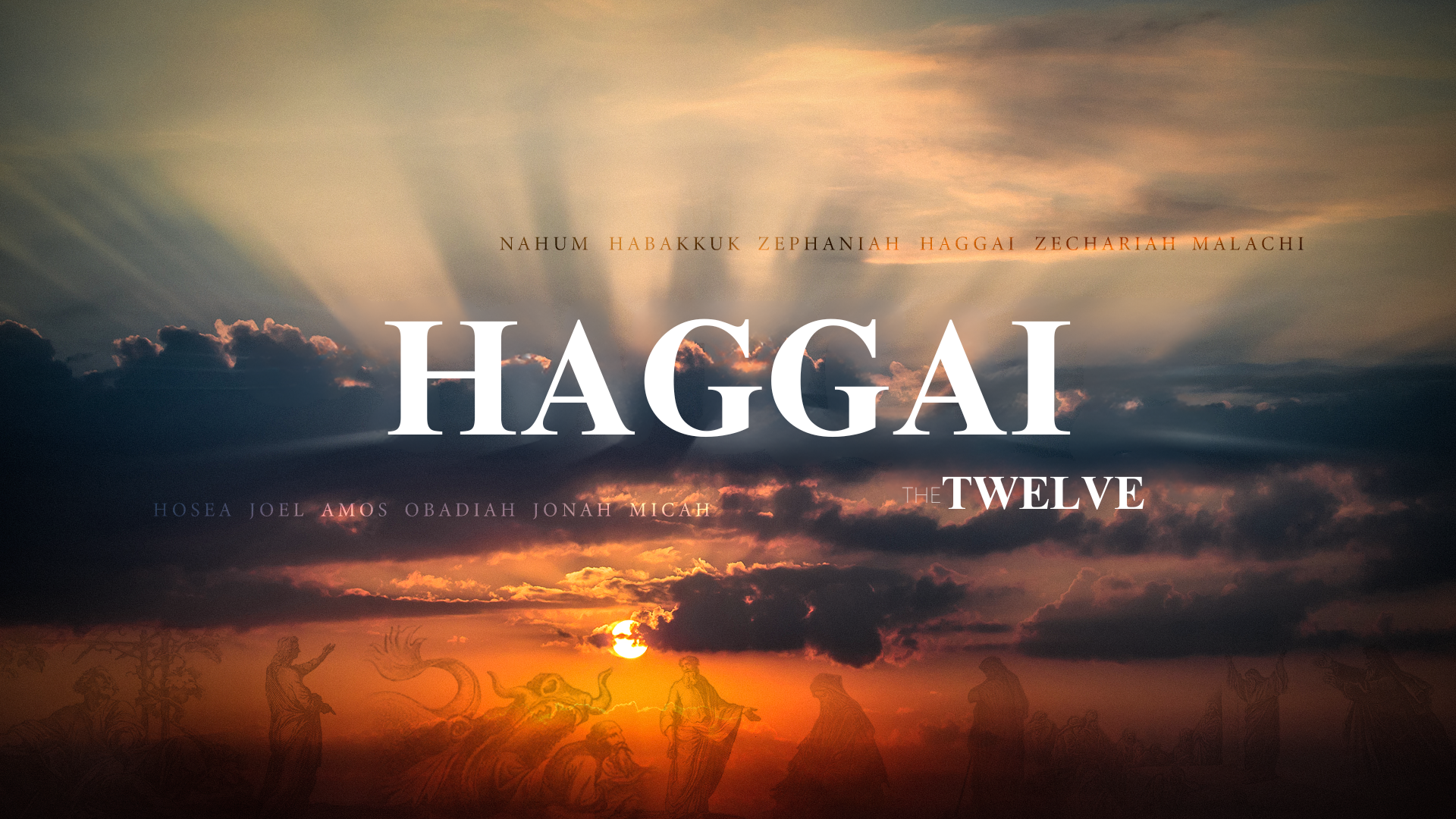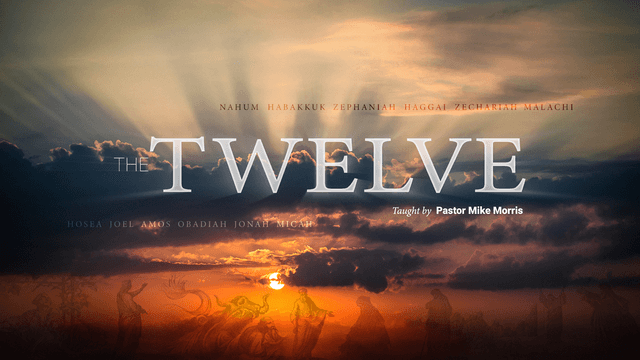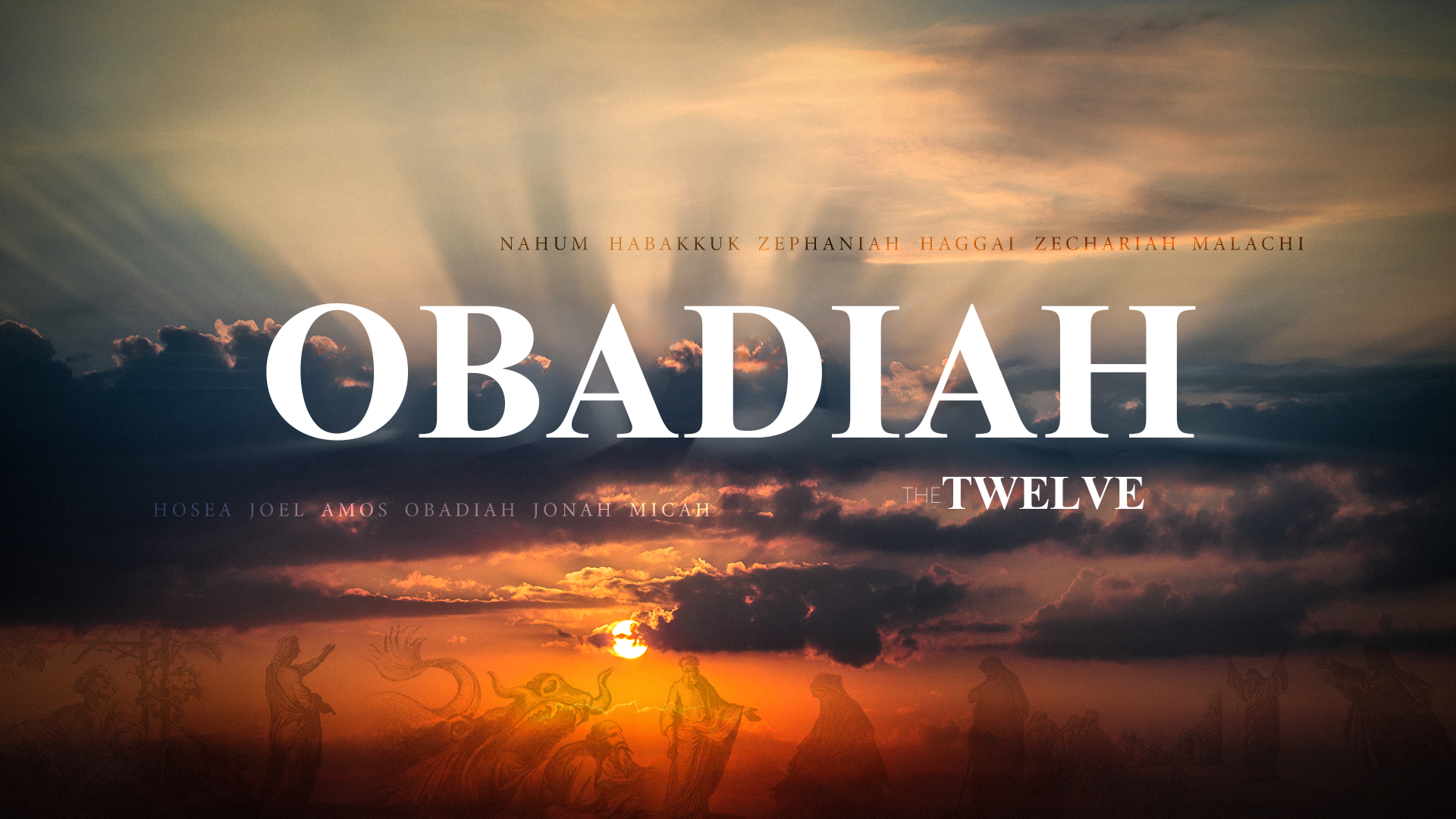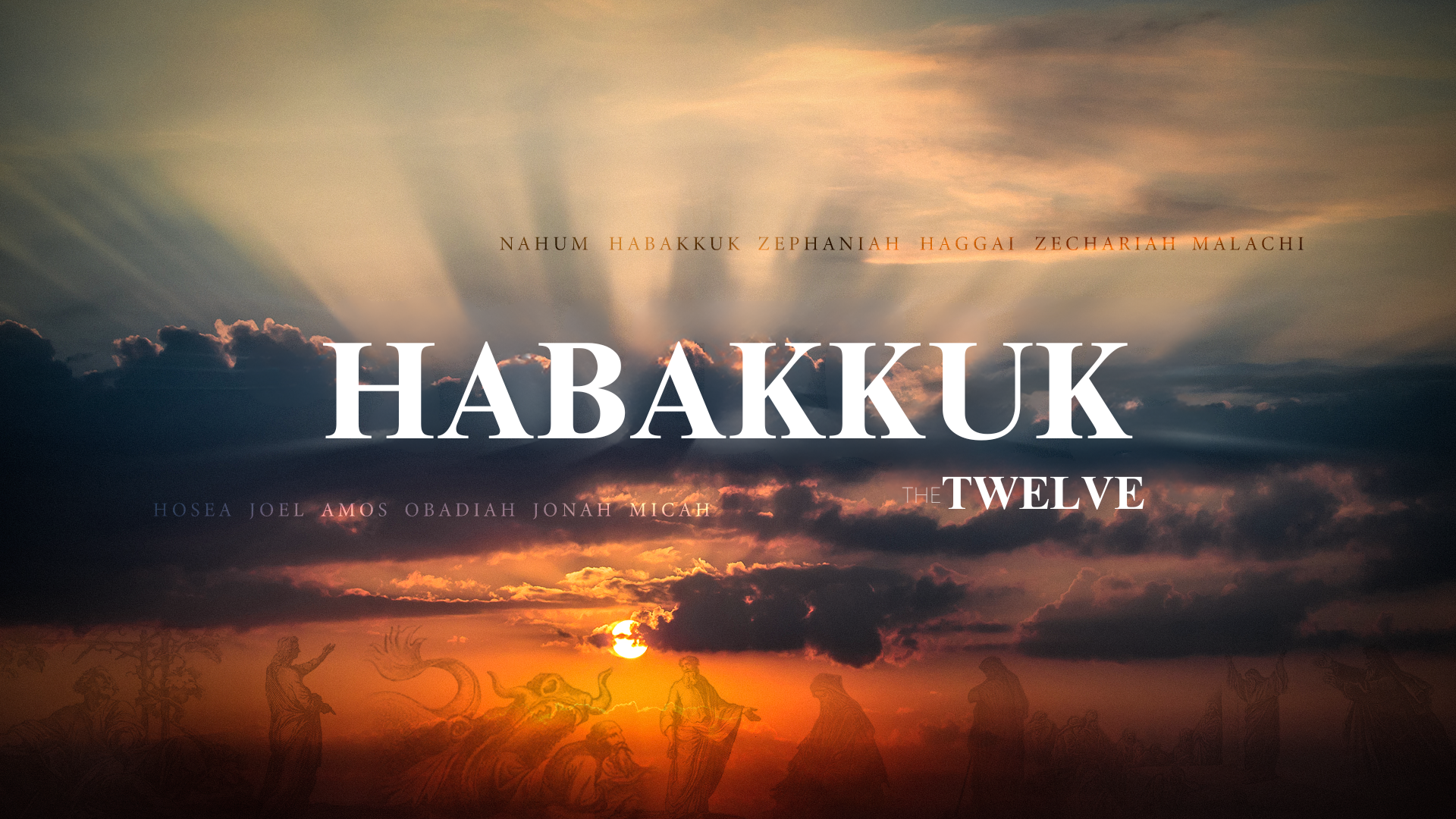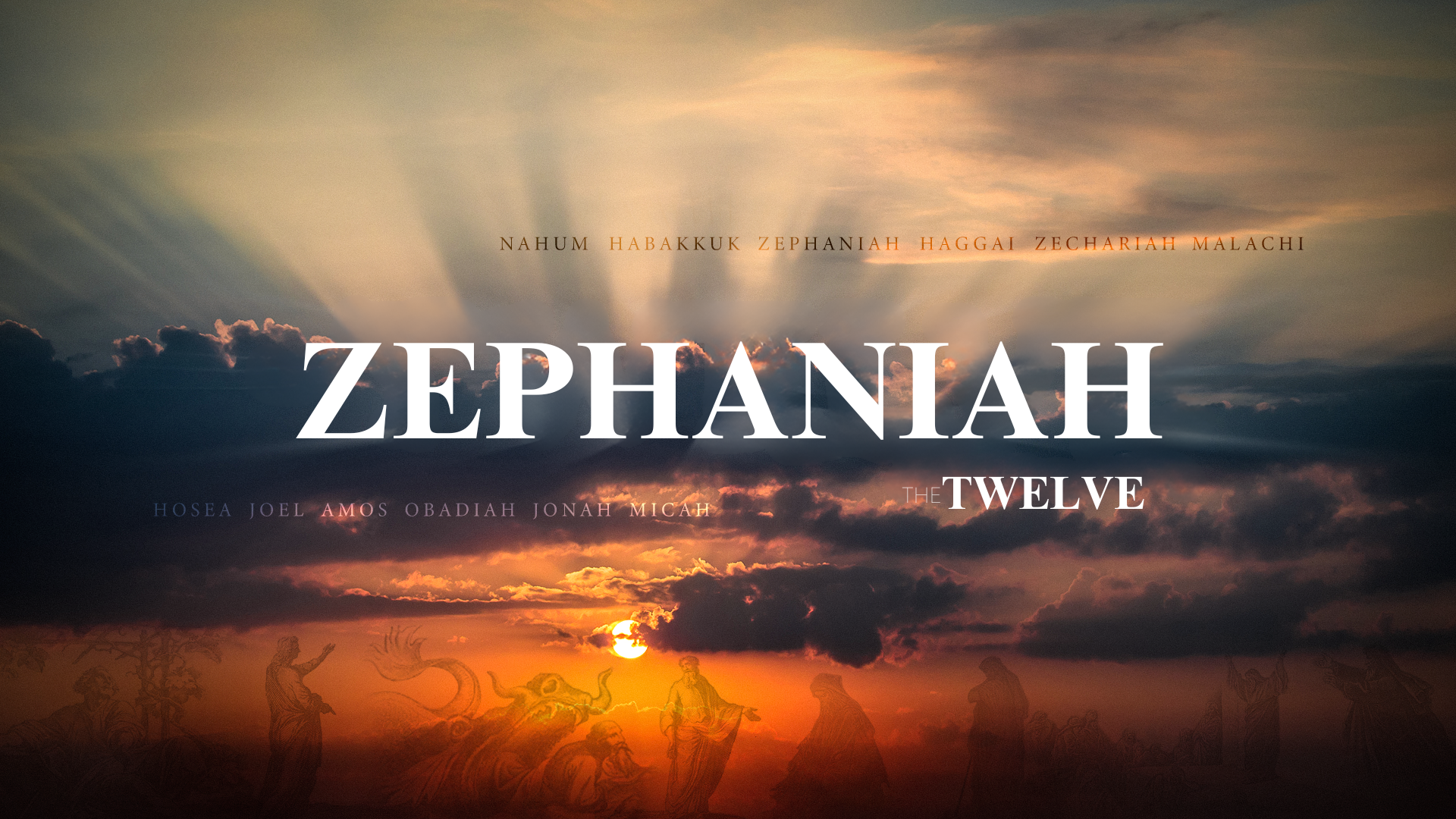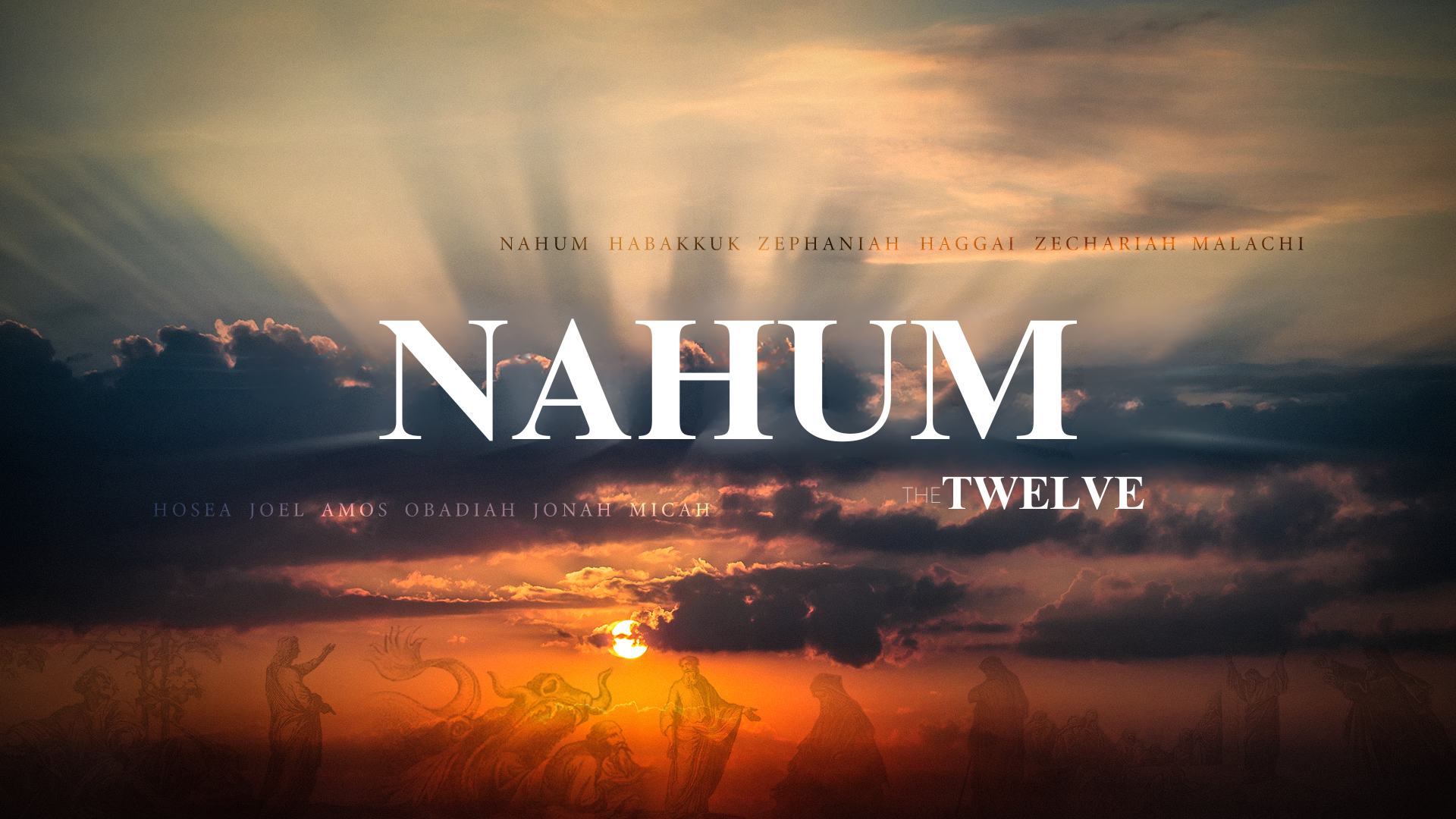INFO
MINISTRIES
TEACHINGS
CONNECT
Sunday Service 9am & 11am
Wednesday Service 7pm
(210) 920-6502
551 E Nakoma St.
San Antonio, TX 78216
MANUSCRIPT
Today we continue our third book in the series “The Twelve”, the book of Hosea...
Last time, we examined chapters four and five, as God took up a controversy with His people, particularly with the priests and prophets, for their failure to demonstrate the faithfulness, steadfast love, and knowledge of God that He expected...instead, they had committed heinous sins against each other as well as against their covenant God...and we saw at the end of chapter five that when people fall into sin, the best thing to do is quickly repent...also, please remember that this is rated MA -- for mature audiences only...
This morning, we’ll pick up the text back in chapter 5 verse 13 to provide some context for the beginning of chapter six...
When Ephraim saw his sickness,
and Judah his wound,
then Ephraim went to Assyria,
and sent to the great king.
But he is not able to cure you
or heal your wound.
14 For I will be like a lion to Ephraim,
and like a young lion to the house of Judah.
I, even I, will tear and go away;
I will carry off, and no one shall rescue.
15 I will return again to my place,
until they acknowledge their guilt and seek my face,
and in their distress earnestly seek me.
God warns the people of Israel about their reliance on foreign powers...Isaiah 30 recounts the futility of trusting in Egypt...many other passages are similar...He promises to judge them until the time that they return to Him in repentance...as He puts it, acknowledging their guilt, seeking His face, and earnestly seeking Him...
Now in chapter six we hear the response of the people to this judgment oracle from God...
1“Come, let us return to the Lord;
for he has torn us, that he may heal us;
he has struck us down, and he will bind us up.
2 After two days he will revive us;
on the third day he will raise us up,
that we may live before him.
3 Let us know; let us press on to know the Lord;
his going out is sure as the dawn;
he will come to us as the showers,
as the spring rains that water the earth.”
What are we to make of this sudden turn-around? It sounds as if the people really want to know the Lord...they believe in Him, they trust Him, they want to know the Lord, and that they are confident in His prompt and certain and loving response...but let’s look more closely...
In chapter 5, the prophet says that when the people of Israel faced a threat, they turned to a foreign ally, such as Egypt or Assyria, instead of their covenant God...and that the Lord was going to be to them as a lion who tears her prey and carries it off, out of reach of any rescuer...in verse 15, the Lord God says He would wait and see what Israel and Judah would do, to see if they were truly repentant and would seek His face as they acknowledged their guilt and earnestly seek Him...
And in verses 1 through 3, we see a response based on what the Lord had said in the previous passage...God says in 5.14 that He will tear them as a lion tears her prey, and the people respond by saying that He has “torn us” in chapter 6 verse 1...the expectation of the people in chapter six verse 1 that the Lord will heal them answers the word of God in chapter 5 verse 13 that the foreign allies of Israel are not able to heal Israel...the expectation in chapter 6 verse 2 that the nation will “live before Him” echoes the call of God in chapter 5 verse 15 that the nation was to “seek His face”...the two passages are written in close parallel...but Israel left out one important point...
No where in chapter 6 verses 1 through 3 do they admit and acknowledge their sin.
This is what false repentance sounds like...they dance around actually confessing their sin before God, but they never really do it...there is no stating their sins of idolatry, spiritual adultery, robbery and abuse of the poor, of rejecting knowledge of God...yet perversely, they are supremely confident that God is ready and willing to forgive and forget all their sins...
Seven times in three verses, the people of Israel express great confidence that God will forgive them and receive them...
he has torn us, that he may heal us;
he has struck us down, and he will bind us up.
After two days he will revive us;
on the third day he will raise us up,
that we may live before him.
his going out is sure as the dawn
he will come to us as the showers, as the spring rains that water the earth.”
Seven times they affirm their belief that He will bless and heal them...they do not seem to realize that simply saying it doesn’t make it so...the Lord God was very clear at the end of chapter 5 that He expected Israel to demonstrate true repentance, true turning away from their sin...but instead of confessing to God exactly what they had done, and agreeing with Him that they were wrong and He was just in His judgment, and then asking, even begging, for His undeserved grace and mercy, the people of Israel merely say “God will forgive us” without doing what He insisted was necessary to receive that forgiveness -- turning from their idolatry and wickedness, and turning to God in trust and faith
Chapter six verses 1 through 3 is a clear example of the voice of a proud, arrogant heart who will not turn away from sin but still somehow expects God to forgive their sin anyway
Let me bring you to a much different passage of Scripture to show you what true repentance sounds like...turn with me to Psalm 51
Psalm 51 was written by King David after he was confronted by the prophet Nathan regarding his sin of adultery with Bathsheba, the wife of Uriah, and of murdering Uriah in a failed attempt to cover it up...we read the historical account in II Samuel 12...after setting David up with a story designed to bait him into hasty judgment, Nathan says to David, “You are the man!”
Nathan continues with a description of God’s judgment on David and his house, after which David responds by making a simple statement in II Samuel 12.13: 13 David said to Nathan, “I have sinned against the Lord.”
And Nathan said to David, “The Lord also has put away your sin; you shall not die.
Psalm 51 is David’s response to God as he has reflected on his sin and now comes before God in repentance and trust
Listen to David’s words in Psalm 51.1-6, 9-10 and compare them to those of idolatrous Israel in Hosea 6.1-3
Have mercy on me, O God,
according to your steadfast love;
according to your abundant mercy
blot out my transgressions.
2 Wash me thoroughly from my iniquity,
and cleanse me from my sin!
For I know my transgressions,
and my sin is ever before me.
4 Against you, you only, have I sinned
and done what is evil in your sight,
so that you may be justified in your words
and blameless in your judgment.
5 Behold, I was brought forth in iniquity,
and in sin did my mother conceive me.
6 Behold, you delight in truth in the inward being,
and you teach me wisdom in the secret heart.
9 Hide your face from my sins,
and blot out all my iniquities.
10 Create in me a clean heart, O God,
and renew a right spirit within me.
That’s what true repentance sounds like...no excuses, no proud presumptions on God’s grace, no expectations of His mercy, no boasting about what God is going to do for you...
Only a heartfelt rejection of our own sinful behavior and a contrite pleading before the Lord for His forgiveness...Psalm 51.17 says it well...
The sacrifices of God are a broken spirit;
a broken and contrite heart, O God, you will not despise.
Having seen that there is not a repentant heart in the nation, God now responds to the people of Israel and Judah...
4 What shall I do with you, O Ephraim?
What shall I do with you, O Judah?
Your love is like a morning cloud,
like the dew that goes early away.
Do you hear the sad and frustrated heart of God? If this had been a genuine expression of repentance and grief on the part of Israel, the response of God would have been much different...when we get to the end of the book, chapter 14, we’ll see a truly repentant Israel and a deeply forgiving God reconciled...but that’s not today...here, this passage reminds us of chapter 2, as God laments the lack of knowledge in the nation, so much so that they didn’t even know that it was their covenant God who provided all they had, not the false gods of the Baals...His heart is to love and bless and forgive, but the Lord knows that the best thing for us is to be brought to a realization of our sin so that we turn from it and turn back to Him...so He takes the necessary but difficult steps to bring judgment and adversity and suffering into our lives from time to time, to draw us back to Him...
Why does He do these things? Because He knows us...hear David again in Psalm 139.1-4
O Lord, you have searched me and known me!
2 You know when I sit down and when I rise up;
you discern my thoughts from afar.
3 You search out my path and my lying down
and are acquainted with all my ways.
4 Even before a word is on my tongue,
behold, O Lord, you know it altogether.
Turning back to Israel, God knew their lack of commitment and constancy...He knew their boastful words of chapter 6 verses 1 through 3 were empty...instead of comparing them to a well-watered garden or an always-flowing stream or a tree planted beside the waters, God says their love for Him is like a morning cloud, like that dew that burns away in minutes as the heat of the day comes...it’s a powerful image in an arid land that depended on much-needed rainfall and even the overnight dew to water the crops...like unsteady water sources, their loyalty and devotion didn’t last...the Lord says, because I know you as only your God can know you, I will not relent in My judgment, but My word will continue to go forth...
5 Therefore I have hewn them by the prophets;
I have slain them by the words of my mouth,
and my judgment goes forth as the light.
Verse 5 is a good example of parallelism...God’s word is the method or vehicle of His judgment...by His word, communicated through His prophets, He has hewn the people, He has cut them down...and He has slain them by the words of His mouth...the words are different but the thought is the same...the nation would fall under the judgment of God, which would go forth, as bright and clear and swift as light itself, as the dawning of the sun
And in verse 6 God returns to the two primary themes in the judgment oracle portion of this book: love for God and knowledge of God
6 For I desire steadfast love and not sacrifice,
the knowledge of God rather than burnt offerings.
What does God desire to see in us? What does His heart long to see formed in us? Steadfast love -- he’sed -- covenant love, loyal, devoted love, love that will not let Him go; and the knowledge of God...hearts that know Him, really know Him...know His character, His nature, His holiness, His words and His ways...
It reminds us of the well-known passage of the conversation between King Saul and Samuel the prophet about Saul’s disobedience regarding the Amalekites...Samuel’s rebuke of Saul echoes this plea from the Lord...
22 And Samuel said,
“Has the Lord as great delight in burnt offerings and sacrifices,
as in obeying the voice of the Lord?
Behold, to obey is better than sacrifice,
and to listen than the fat of rams.
But at this moment, the rebellious people did not return to the Lord...they did not obey His voice...instead, we see their response in verse 7 and following...
7 But like Adam they transgressed the covenant;
there they dealt faithlessly with me.
8 Gilead is a city of evildoers,
tracked with blood.
9 As robbers lie in wait for a man,
so the priests band together;
they murder on the way to Shechem;
they commit villainy.
This is an interesting passage...Hosea uses another triplet as he describes the persistent sin of the nation...he refers to three locations, each of which connects to a patriarch, through historical narrative or wordplay...while our first thought hearing the word ”Adam” is the first man, it’s also a town, referred to in Joshua 3.16, in the north of Israel near the Jordan River...so as the man Adam transgressed the covenant, so did the town Adam as an Israelite community...Gilead was a better known location, mentioned several times in the OT...it was particularly associated with the patriarch Jacob, who was known for selfishness, cunning, and deceit...Hosea will refer to him again in chapter 12...here murder is added to the story of Gilead...the final phrase is literally “footprints of blood”...and finally Hosea refers to Shechem, a location in Hosea’s day, but Genesis 34 tells the story of a Canaanite man, Shechem, for whom the town was eventually named, who raped the daughter of Israel, Dinah...two of the sons of Israel, Simeon and Levi, retaliated for the rape of their sister by slaying all the males of the town...leading to the reference here in Hosea...
9 As robbers lie in wait for a man,
so the priests band together;
they murder on the way to Shechem;
they commit villainy.
It speaks of treacherous ambush and falsehood, and note a key point of Hosea’s accusation against the house of Israel, for he implicates the priests here, just as their ancestor, Levi, was guilty of betrayal and murder generations before...
Hosea summarizes the Lord’s complaint in verses 10 and the first half of 11...both Israel and Judah are guilty and will be judged, the meaning of the phrase “...the harvest is appointed...”
10 In the house of Israel I have seen a horrible thing;
Ephraim's whoredom is there; Israel is defiled.
11 For you also, O Judah, a harvest is appointed.
Now the Lord takes up two new metaphors to describe the sins of His people, Israel...the heat of an oven and the unthinking folly of a bird...
When I restore the fortunes of my people,
when I would heal Israel,
the iniquity of Ephraim is revealed,
and the evil deeds of Samaria,
for they deal falsely;
the thief breaks in,
and the bandits raid outside.
2 But they do not consider
that I remember all their evil.
Now their deeds surround them;
they are before my face.
3 By their evil they make the king glad,
and the princes by their treachery.
The Lord speaks again of the “iniquity” and “evil deeds” of Ephraim and Samaria, focusing on the Israelites’ treatment of each other, promising that they will be exposed in the day of restoration...thieves break inside homes to steal and pillage, while bandits attack if they are outside or on the roads...no place is safe from the wickedness of Israel
But look at verse 2 -- evildoers forget that the word of the Lord never fails, and that He sees all that they do, and does not forget or overlook their sin...all people, then and now, would do well to hear and remember the truth of Hebrews 4.12-13...
12 For the word of God is living and active, sharper than any two-edged sword, piercing to the division of soul and of spirit, of joints and of marrow, and discerning the thoughts and intentions of the heart. 13 And no creature is hidden from his sight, but all are naked and exposed to the eyes of him to whom we must give account.
God continues His indictment...
4 They are all adulterers;
they are like a heated oven
whose baker ceases to stir the fire,
from the kneading of the dough
until it is leavened.
5 On the day of our king, the princes
became sick with the heat of wine;
he stretched out his hand with mockers.
6 For with hearts like an oven they approach their intrigue;
all night their anger smolders;
in the morning it blazes like a flaming fire.
7 All of them are hot as an oven,
and they devour their rulers.
All their kings have fallen,
and none of them calls upon me.
Verses 4 through 7 have been called “some of the most vexing verses in the OT,” mainly due to the difficulty in translation and the uncertain meaning of the metaphors...but as always, context is very important in understanding the text...you’ll recall that the end of the northern kingdom was characterized by great tumult and unrest as one king followed another in reigns measured often in weeks or months, not years...so this passage discussing the sin and chaos of the king and his court makes more sense as those in power -- the king, the princes, and the religious elite, the priests -- are described in terms of this chaotic intrigue involving adultery, idleness, anger, drunkenness, mockery, and assassination...they are an overheated oven that scorches anything within it...and verse 7 captures the outcome...
7 All of them are hot as an oven,
and they devour their rulers.
All their kings have fallen,
and none of them calls upon me.
Hosea continues the lament in this next portion of the chapter...
8 Ephraim mixes himself with the peoples;
Ephraim is a cake not turned.
9 Strangers devour his strength,
and he knows it not;
gray hairs are sprinkled upon him,
and he knows it not.
10 The pride of Israel testifies to his face;
yet they do not return to the Lord their God,
nor seek him, for all this.
Through lack of concern for the law of God -- note verse 8 regarding intermarriage with the surrounding peoples -- Ephraim is slowly being destroyed...strangers devour the strength of the nation while they also are diminished from within, verse 9...and verse 10 states the inevitable conclusion: apostasy from their God, for they do not return to Him...
Now the Lord turns to a new analogy to describe the sin of Ephraim...He says they are like a dove...they foolishly continue to seek foreign alliances instead of turning to their God...
11 Ephraim is like a dove,
silly and without sense,
calling to Egypt, going to Assyria.
12 As they go, I will spread over them my net;
I will bring them down like birds of the heavens;
I will discipline them according to the report made to their congregation.
For their sin of spiritual adultery against the Lord, He pledges to judge them...He will catch them in a net, bring them down, discipline them...by the hand of the Assyrian Empire, they would learn the folly of their ways...
13 Woe to them, for they have strayed from me!
Destruction to them, for they have rebelled against me!
I would redeem them,
but they speak lies against me.
14 They do not cry to me from the heart,
but they wail upon their beds;
for grain and wine they gash themselves;
they rebel against me.
They would suffer because of their lies and their steadfast refusal to repent and return to the Lord...the self-mutilation mentioned in verse 14 was a characteristic of the pagan religions of Canaan...you’ll recall the story of Elijah confronting the 450 prophets of Baal in I Kings 18.28-29, that it was said of the prophets of Baal that they...
28 ...cried aloud and cut themselves after their custom with swords and lances, until the blood gushed out upon them. 29 And as midday passed, they raved on until the time of the offering of the oblation, but there was no voice. No one answered; no one paid attention.
Though blessed by the Lord, the people of Israel turned against Him...
15 Although I trained and strengthened their arms,
yet they devise evil against me.
16 They return, but not upward;
they are like a treacherous bow;
their princes shall fall by the sword
because of the insolence of their tongue.
This shall be their derision in the land of Egypt.
Hosea closes with the imagery of the coming conflict with Assyria...strengthened arms, a treacherous bow, and princes dying in battle all speak to the coming judgment God would use to discipline His people...they would eventually be taken into captivity by Assyria, earning the mockery of the Egyptians...
What are we to learn from this continued controversy between the righteous God and His rebellious people? I’ll offer three thoughts...
Realize that you are fully known by God...and use that knowledge to seek His face...be like an ever-flowing stream, filled with the living water of Christ, not like the dew that is burned up by pride and arrogance
Remember that God desires steadfast love and true knowledge of Him, not religious rituals...for He sees us as we truly are...for as the Lord said in I Samuel 16, man looks on the outside, but God looks on the heart...what does He see when He looks upon your heart?
Reject the false teaching of shallow repentance and cheap grace...listen to the words of Dietrich Bonhoeffer...
“Cheap grace is the grace we bestow on ourselves...the preaching of forgiveness without requiring repentance, baptism without church discipline, communion without confession. Cheap grace is grace without discipleship...costly grace is the gospel which must be sought again and again, the gift which must be asked for, the door at which a man must knock...it is costly because it costs a man his life, and it is grace because it gives a man the only true life.”
My call to you today is this: truly and fully repent while there is yet time...seek the Lord while He is near...turn from pride and arrogance to humility and devotion to the Lord...and receive the costly grace of the Lord Jesus Christ

Taught by Mike Morris
Associate Pastor of Verse By Verse Fellowship
The Twelve Series
